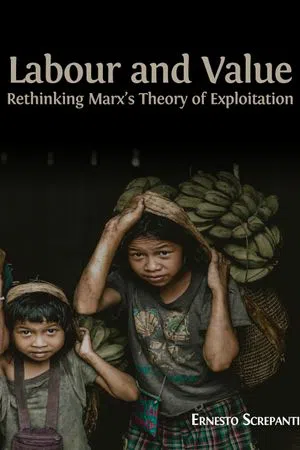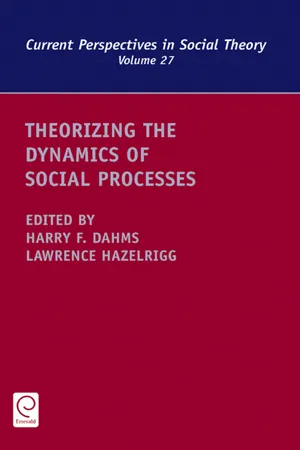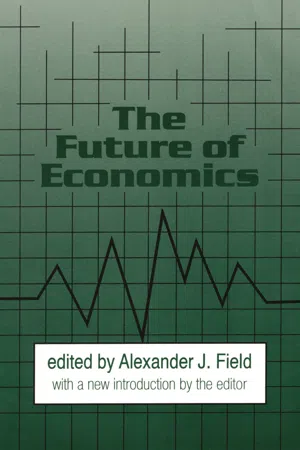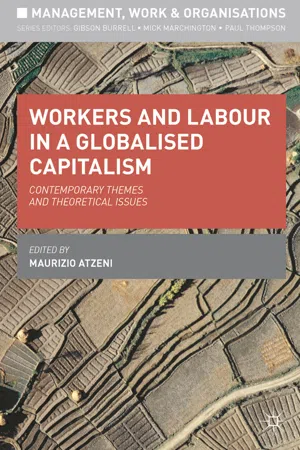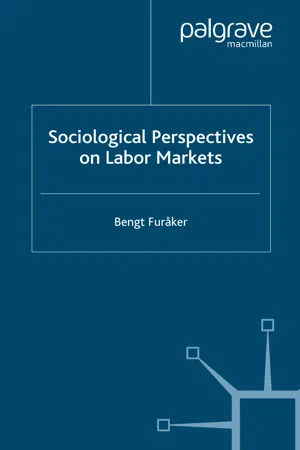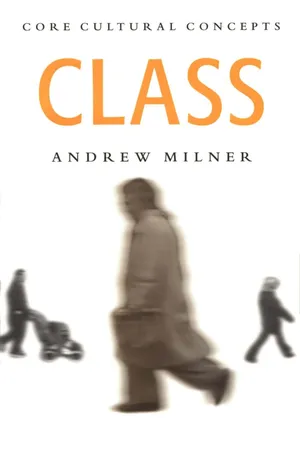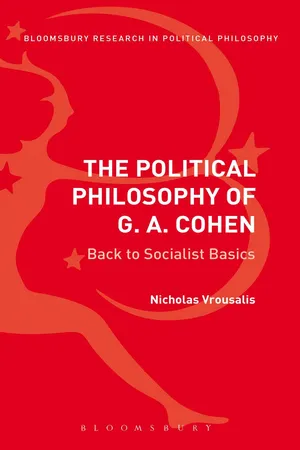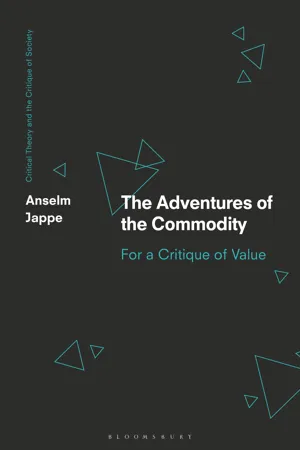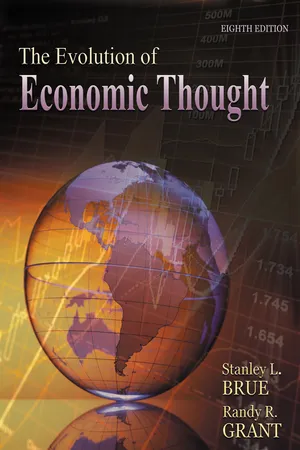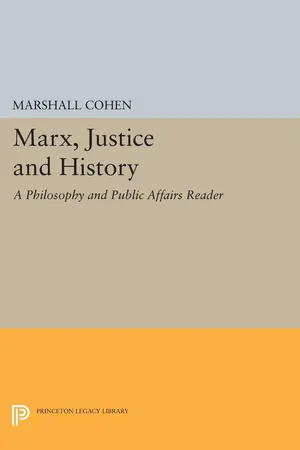Social Sciences
Marxist Theory of Labour
The Marxist theory of labor, rooted in the works of Karl Marx, emphasizes the exploitation of labor by the capitalist class. It posits that the value of goods and services is derived from the labor required to produce them, and that the surplus value generated by labor is appropriated by the capitalist, leading to inequality and alienation among workers.
Written by Perlego with AI-assistance
Related key terms
1 of 5
11 Key excerpts on "Marxist Theory of Labour"
- eBook - PDF
- Ernesto Screpanti(Author)
- 2019(Publication Date)
- Open Book Publishers(Publisher)
3. Labour Subsumption and Exploitation A scientific theory of capitalist exploitation aims to causally explain the production of surplus value. Marx develops this theory in volume 1 of Capital , especially parts 3–5, which are devoted to elucidating the effects of capitalist control of the labour process, and parts 6–7, devoted to explaining the dynamics of wage determination. In fact, most of the volume deals with the social, technological and organizational conditions of exploitation. The theory of labour subordination and subsumption is not yet an explanation of exploitation. It is a theory of the capitalists’ power. It becomes the essential part of a proper explanation of exploitation through reconstruction: firstly, of the way in which that power is used in managing a factory 1 and, secondly, of the way wages are fixed. Marx’s reasoning in parts 3–5 reveals that concrete commodities are the products that workers actually create in the labour process. A 1 Yoshihara (1998), Veneziani (2013) and Vrousalis (2013) clarify that a theory of power is necessary to account for exploitation. Following publication of the seminal and controversial book by Braverman (1974), an important line of research known as “labour process theory” has developed in contemporary sociology, with the goal of investigating the capitalist organization of labour activity. See, for instance, Knights and Willmott (1990), Shalla and Clement (2007), and Thompson and Smith (2010). In my reconstruction, it is not necessary to enter the infinite debate provoked by Braverman’s thesis on the tendency of capitalism to deskill labour activity. Suffice it to recall that an alternative view has been put forward, which holds that a skill-upgrading tendency exists. See Adler (1990) as one of the most persuasive proponents of this thesis. © Ernesto Screpanti, CC BY 4.0 https://doi.org/10.11647/OBP.0182.03 46 Labour and Value commodity is a thing, an object produced by a subject using concrete labour. - eBook - PDF
- Harry F. Dahms, Lawrence Hazelrigg, Harry F. Dahms(Authors)
- 2010(Publication Date)
- Emerald Group Publishing Limited(Publisher)
A detailed study of these relationships and processes is important because, according to Marx’s theory, necessary labor-time is a gravitational pull that attracts or repels capital from its mean depending on the situation. Showing how this is so will allow Marxist scholars to make a more convincing case for the validity of the labor theory of value. CONCLUSION One weakness of mainstream science, in Marx’s view, is the hypostatization of concepts, something that dialectical reason and historical analysis help overcome. For instance, rather than a static relation only applicable in modernity, Marx sees labor as something that crosses all historical systems, an exploited social relation in class systems, shaped by the law of value in capitalism, and a social relation targeted in special ways with capitalism’s recent developments, e.g., changes within capitalism that have been dubbed ‘‘globalization.’’ As such, much debate on Marx’s value theory goes on without a sufficiently developed conception of the labor–value relation as a phenomenal form that acquires characteristics in its transformations across levels of generality. Without an appropriate grasp of how Marx synthesizes historical developments and private/social levels with his pure models our lines of inquiry often stall. 52 So, to return to a central question of this article, what does Marx’s value theory look like? At core, Marx is interested in how the labor–value relation in general (i.e., the relationships between nature, The Labor–Value Relation and Its Transformations 195 - eBook - PDF
- Alexander J. Field(Author)
- 2020(Publication Date)
- Routledge(Publisher)
Marx's analytical framework contains several concepts that illuminate the relation between the development of an industrial labor force and Britain's successful industrialization. On the one hand, the Marxian focus on the importance of proletarianization and relative surplus population directs our attention toward social conflicts over alternative modes of acquiring a subsistence, such as resettlement of land, poor relief, crime, emigration, and domestic industry. On the other hand, Marx's emphasis on the duration of work, the intensity of labor, and mechanization as determi-nants of productivity directs our attention to the behavioral transformation that was required to get the proletariat to accept the work discipline that, along with automation, became a defining characteristic of the factory form of work organization. Yet, as I argue in section III, in analyzing the evolution of the factory system in Britain's industrial revolution, Marx is overly impressed by the role of technology in shaping the structure of social power. Since Marx wrote, historians have added considerably to our knowledge of the emergence and development of a factory labor force in Britain. I Empiri-cally speaking, we are now in a much better position to assess the weaknesses of the Marxian analysis of the interaction of the forces and relations of production in the rise of industrial capitalism, and modify it accordingly. Marx emphasizes, and decries, the adverse social impact of industrial capitalism on the worker. But what distinguishes Marx from the well-informed muckraker or the compassionate social historian is his construc-tion of the theory of surplus-value to analyze the economic causes and consequences of (as he calls it) the subsumption of labor to capital. Section IV outlines and assesses Marx's theory of surplus-value as a micro-economic theory of productivity growth and income distribution under capitalism. - eBook - ePub
Workers and Labour in a Globalised Capitalism
Contemporary Themes and Theoretical Issues
- Maurizio Atzeni(Author)
- 2013(Publication Date)
- Bloomsbury Academic(Publisher)
1 THEORETICAL ISSUES: EXPLAINING THE CENTRALITY OF LABOUR WITHIN CAPITALISMPassage contains an image 1 MARX AND MARXIST VIEWS ON WORK AND THE CAPITALIST LABOUR PROCESS
David A. SpencerINTRODUCTIONThe writings of Karl Marx and the Marxist tradition offer a profound analysis of work. Marx combined an analysis of work as a vital human activity, with a critique of the form of work under capitalism. Work, in Marx’s view, remained ‘alienating’ under capitalist conditions; however, it retained the potential to become a life-enhancing activity in a future communist society. The alienation of the worker from his or her work could not be overcome, according to Marx, without the abolition of capitalism, and the move to communism. Marx’s analysis of work has remained, and continues to remain, a source of inspiration for critical work researchers as well as political activists.Marxist analysis of work was renewed and reinvigorated in the 1970s. The pioneering work of Harry Braverman (1974) and others brought about a fresh debate about the application of Marx’s original ideas to the study of the capitalist labour process. This debate has continued in the years that have followed (see Thompson and Newsome 2004). One of its fruits has been the development and promotion of ‘labour process theory’. The latter, while still incorporating Marxist concepts and language, has forged its own path and has become progressively more open to different perspectives and approaches. Labour process theory remains a prominent influence on critical scholarship on work in the sociology of work, industrial relations, and organisation theory (Thompson and Newsome, 2004; Thompson, 2010). It remains a matter of debate whether and in what ways the Marxist tradition can enrich the analysis of the capitalist labour process.This chapter considers the contribution of Marx and some aspects of the Marxist tradition to the analysis of work. A few words of clarification need to be made at the outset. First, the writings of Marx on the topic of work are voluminous and cannot be fully considered in a single chapter. Readers interested in a fuller treatment of Marx’s writings on work should consult other more detailed sources (see, for example, Sayers 2011). They could also consider reading some of the original work-related writings of Marx. Second, the Marxist literature on work is large and is impossible to summarise here. For example, although not covered below, there is a literature associated with the autonomist or workerist tradition in Marxism that deals with issues relating to the capitalist labour process, the bifurcation between work and labour, and struggles over and against labouring activity under capitalism (Cleaver, 2000; Holloway, 2010). Readers could follow up discussion presented below with further reading that draws on literatures such as those just highlighted. For the purposes of this chapter, particular attention will be given to the labour process debate. Although the latter was initially based in the UK, it has become much more international in scope and contributors. In addition, the issues it discusses, such as the nature of conflict between labour and capital in the workplace and the transformation of work under the imperative of capital accumulation, have wide relevance and apply to many different national contexts. - eBook - ePub
- Peter C. Dooley(Author)
- 2005(Publication Date)
- Routledge(Publisher)
Capital, Marx (1961–62 [1867–94]: 38) wrote that labour is “the value-creating substance.” The economical proposition explains Petty’s doctrine that past labour produced capital goods. If labour does not receive what it creates, then labour is exploited.The sociological proposition concerns the class structure of society, a class of propertyless labourers who work for wages and a class of property owners who receive rent and profits. In the Communist Manifesto, Marx and Engels (1977 [1848]:36) wrote: “Society as whole is more and more splitting up into two great hostile camps, into two great classes directly facing each other: Bourgeoisie and Proletariat.” Smith and Ricardo accepted the class structure of labourers, capitalists and landlords as a matter of fact. It roughly coincided with the facts of British society in the eighteenth and nineteenth centuries. For Marx, the fact that property incomes exist proves that labour is exploited.Thus, the Marxian theory of exploitation has a logical as well as an empirical basis that is unrelated to the labour theory of value in exchange. If labour produces all commodities, but does not receive all the income derived from production, then labour may be said to be exploited.18 In Value, Price, and Profit, among other places, Marx (1889:67) wrote “Rent, Interest, and Industrial Profit are only different names for different parts of the surplus value of the commodity, or the unpaid labour enclosed in it.” The class struggle determines the degree of exploitation. Neoclassical economists accept neither the economical nor the sociological basis of the Marxian theory of exploitation. For Walras, commodities are produced by all the productive services in the economy—all the types of land, labour and capital, which are arbitrarily distributed among the population in a manner that is not explained. In a Walrasian world, wages, profits and rents change with every redistribution of property. Walras treated the distribution of property as a matter of justice, not economics.19 - eBook - PDF
- B. Furåker(Author)
- 2005(Publication Date)
- Palgrave Macmillan(Publisher)
However, it is appropriate or even necessary for me to take at least one step backward. What has just been said does not at all mean that I consider 6 Sociological Perspectives on Labor Markets all sociological theorizing equally good or bad. On the contrary, I do not hesitate to denounce approaches that in my opinion are flawed or ill- founded. The reader will find several examples of this throughout the book; it is not at all free from polemic argumentation. I simply want to keep away from making too much out of differences that might not be as important as we have been accustomed to think. To illustrate my position, a few exam- ples will be provided of how I look at the heritage that Marx and Weber have left. In the following chapters, several Marxist concepts - such as labor market, labor power, mode of production, relations of production, and pro- ductive forces- will appear. However, to some extent I use these concepts in my own way or, perhaps more adequately, in a Weberian way (if that is possible). For example, whereas Marx made a distinction between labor power (people's capacity for work) and labor (work) in order to develop his theory of capitalist exploitation, I keep that distinction because of other reasons. In the Marxist labor theory of value, capitalists hire labor power from workers and pay for their reproduction but not for the surplus that they produce; this is in essence how the mechanisms of capitalist exploita- tion are accounted for. On grounds to which I briefly return in Chapter 2, I do not adhere to this theory, but I nevertheless find it important to keep some of the conceptual framework. To say that workers hire out their labor power to employers in exchange for money is still the most adequate description of what takes place. - eBook - PDF
- Andrew Milner(Author)
- 1999(Publication Date)
- SAGE Publications Ltd(Publisher)
Both slaves and serfs could be compelled by force to work for their masters, so that surplus was extracted ultimately through the threat or actuality of direct coercion. The novelty of capitalism, for Marx as for many other nineteenth-century socialists, consisted in the creation of a system of exploitation in which the relations of production were contrac-tual rather than imperative. The exploited class, the 'proletariat', in Marx's phrase, is a class of formally free labourers, whose labour-power is sold to their employers in exchange for wages. Like most nineteenth-century economists, Marx subscribed to a 'labour theory of value', in which the relative value of com-modities was held to be determined by the amount of labour-power necessary to produce them. Since labour-power is itself a commodity, its value is equivalent to the amount of labour socially necessary to (re)produce it. Marx is clear that in a competitive labour market the workers will be paid the full exchange value of their labour-power. The system remains exploitative, nonetheless, because labour alone of all com-modities is productive of value and because workers actually 20 CLASS produce considerably more value than the amount necessary for the reproduction of their own labour. As Marx has it: the value of labour-power, and the value which that labour-power creates in the labour-process, are two entirely different magnitudes; and this difference of the two values was what the capitalist had in view, when he was purchasing the labour-power . . . What really influenced him was the specific use-value which this commodity possesses of being a source not only of value, but of more value than it has itself (Marx, 1970, p. 193) Capitalist relations of production thus generate a very particular class structure, according to Marx, in which the owners of capital buy labour-power from propertyless wage-earners, who are themselves obliged to sell it on the labour market in return for wages. - eBook - PDF
The Political Philosophy of G. A. Cohen
Back to Socialist Basics
- Nicholas Vrousalis(Author)
- 2015(Publication Date)
- Bloomsbury Academic(Publisher)
By the same token, the division of violence between coercer and exploiter under capitalism, long ago noted by Marx, is to be functionally explained. 2 Capitalism’s official coercer and propagandist is the state, charged both with enforcing capitalist property rights (rendering them effective ) 3 and with disseminating ideology on a large scale. Generations of Marxists have held that these social mechanics of exploitation are intimately connected with a set of propositions called ‘the labour theory of value’. Cohen devotes considerable attention to understanding that putative connection. The labour theory of value In a justly celebrated essay, first published in 1979, and entitled ‘The Labour Theory of Value and the Concept of Exploitation’ (Cohen 1988, pp. 209–238), Exploitation 85 Cohen sets out to show that ‘the relationship between the labour theory of value and the concept of exploitation is one of mutual irrelevance’ (Cohen 1988, p. 209). In effect, Cohen sets out to refute the following set of traditional Marxist commitments: (1) If capitalists exploit workers, then the labour theory of value is true. (2) If the labour theory of value is true, then capitalists exploit workers. Given the significance of this refutation for Cohen’s later forays into the territory of normative political philosophy, I shall study it at some length. I begin with (1). Cohen construes the labour theory of value as the idea that ‘equilibrium price is determined by socially necessary labour time’, and attributes it to Marx. He then argues that the labour theory entails that labour does not, indeed cannot, create value, as some Marxists insist. For socially necessary labour time and the cognate notion of ‘embodied labour’ are counterfactual magnitudes. - eBook - ePub
The Adventures of the Commodity
For a Critique of Value
- Anselm Jappe(Author)
- 2023(Publication Date)
- Bloomsbury Academic(Publisher)
Some even argued that to be a Marxist there was no need to adhere to the labour theory of value. The first to state it explicitly was Eduard Bernstein in 1899, one of the leaders of German Social Democracy (see Bernstein, 1993). Indeed, for many other Marxists the labour theory of value was an unscientific, ‘metaphysical’ remnant of Marx’s Hegelian origins. It was not thought to be on a par with modern science and was merely an obstacle to the application of Marxist theory to the economic problems of contemporary times. The best thing would therefore be to sacrifice it as an unnecessary burden, so as to save the other parts of Marx’s theory. If other Marxists did not reach such conclusions, it is simply because they did not see any problem with value as such. Fetishism, abstract labour, value, the commodity and money as critical categories – that is, not simply arising from empirical reality – played almost no role in the discussions within the Second International. The few times that it did crop up saw the subject dropped, 17 and even the best theorist at the time, Rosa Luxemburg, devoted next to zero attention to it. Of course, what lies at the origin of this attitude is not a misinterpretation of the Marxian analysis of the commodity, but powerful historical motifs that influenced the way Marx was read. The workers’ movement did not go astray from its goal, on the contrary, it accomplished its real task: that of ensuring the integration of workers into bourgeois society. In truth, the workers wanted this integration, which the bourgeoisie refused whilst society was still largely dominated by pre-capitalist and often paternalistic social relations. This was demonstrated by the absence of voting rights for workers, who remained outside society as subjects endowed, even formally, with minor rights. What the workers’ movement successfully spearheaded was the struggle for workers’ recognition, the ‘fourth estate’, as just another owner of commodities - eBook - PDF
- Stanley Brue, R. Grant, Stanley Brue, Randy Grant(Authors)
- 2012(Publication Date)
- Cengage Learning EMEA(Publisher)
Cengage Learning reserves the right to remove additional content at any time if subsequent rights restrictions require it. Defects in the labor theory of value. There are several problems with Marx ’ s labor theory of value. Contemporary economists dispute that workers are the source of all exchange value. Land and capital resources also are productive, inde-pendently of and beyond the value of the labor required readying them for produc-tion. Therefore, the owners of land and labor resources deserve a return that is sufficient to keep these resources employed in producing a particular commodity. It is true that capital in part is produced by past labor, but the past labor is paid in accordance with its contribution to producing the capital. The capital then becomes an independent resource that can be bought and sold. As such, it can cre-ate value beyond the value of the labor used to produce it. A more technical criticism is the previously mentioned “ transformation prob-lem ” associated with Marx ’ s labor theory. Other technical problems allegedly exist. For example, in Volume 1 of Capital, Marx assumed a uniform rate of sur-plus value across all industries in order to contend that labor is the exclusive source of all value. As Edwin West has pointed out: But if this rate of exploitation is the same everywhere, hours of work have also to be uniform. Marx accordingly insisted that this was so and quoted contemporary evi-dence in support. A close examination of his sources (nineteenth-century factory inspectors ’ reports) fails, however, to confirm his prediction. Instead the data are more consistent with the competing neoclassical hypothesis, originating with Jevons, that work hours will vary because workers ’ labor and leisure preferences vary. 17 Problems with Marx ’ s theory of exploitation. According to Marx, the wages paid to workers tend toward the cultural subsistence because of the presence of a large reserve army of the unemployed. - eBook - PDF
Marx, Justice and History
A Philosophy and Public Affairs Reader
- Marshall Cohen(Author)
- 2014(Publication Date)
- Princeton University Press(Publisher)
But I shall not defend the last sentence. Marxists who deny it will find this essay less challenging, but I hope th^y will read it any- way. For while my main topic is the relationship between (4) and the labor theory of value, in pursuing it I uncover deep and neglected ambiguities in the labor theory of value itself, and no Marxist will deny that many Marxists do affirm the theory of value. Ill I begin with an argument which is based on the labor theory of value, and whose conclusion is that the worker is exploited, where that is taken to entail an injustice. We can call it the Traditional Marxian Argument. It may be attributed to those believers in (4) who hold that the labor theory of value supports (4): (5) Labor and labor alone creates value. ( 6) The laborer receives the value of his labor power. (7) The value of the product is greater than the value of his labor power. (8) The laborer receives less value than he creates. (9) The capitalist receives the remaining value. . . ( ι ο ) T h e l a b o r e r i s e x p l o i t e d b y t h e c a p i t a l i s t . 140 A Philosophy & Public Aifairs Reader Premise (5) comes from the labor theory of value, and the labor the- ory of surplus value supplies premises (6), (7), and (9). This statement of the Traditional Marxian Argument is incomplete in two respects. First, an essential normative premise is not stated. Its content, in very general terms, is that, under certain conditions, it is (unjust) exploitation to obtain something from someone without giving him anything in return. To specify the conditions, and thereby make the premise more precise, is beyond the concern of this essay. A rough idea of exploitation, as a certain kind of lack of reciprocity, is all that we require.
Index pages curate the most relevant extracts from our library of academic textbooks. They’ve been created using an in-house natural language model (NLM), each adding context and meaning to key research topics.
